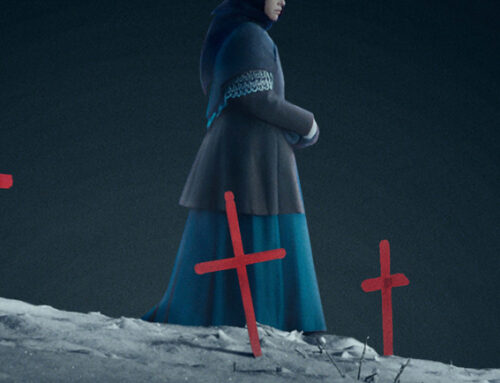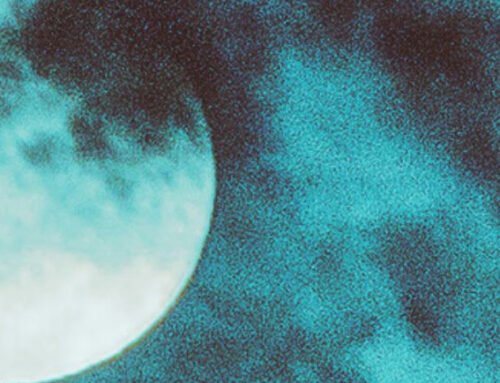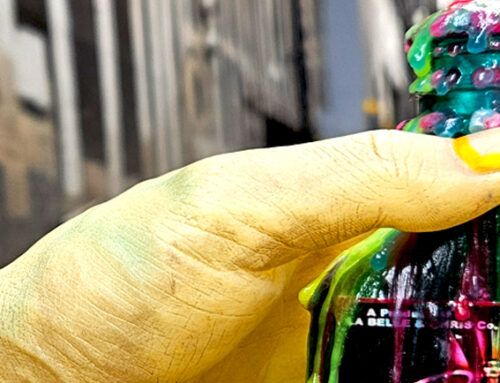Glasshouse is a beautiful film, its “post-apocalypse meets Edwardian-era” aesthetic so different from what we normally expect from pandemic movies. The colors are vibrant, and the camerawork is simply marvelous. The worldbuilding is so imaginative, I’m willing to forgive a few of the smaller logical inconsistencies.
Never let a stranger enter the sanctuary.
The sanctuary and all it holds is sacred.
Guard the memories we need to survive.
In a wilderness ravaged by an airborne toxin, there is an oasis – a sprawling greenhouse where one family can lead an ordinary life. Or, as close to ordinary as possible. A plague called The Shred taints the air outside the greenhouse, manifesting symptoms similar to dementia in those who breathe it, and anyone going outside can only do so safely with the aid of makeshift gas masks.
Guarding her family with an iron will is their Mother (Adrienne Pearce). Though she’s getting on in years, she’s easily one of the sharpest members of the family, keeper of their rules and traditions, keeping the memories that make her and her children who they are alive. Second to her is middle daughter Evie (Anja Taljaard). Evie is practical and serious, fearing the consequences of any carelessness. Oldest daughter Bee (Jessica Alexander), on the other hand, is more flighty, struggling with some memory issues. Daisy (Kitty Harris) is sharp and enthusiastic about learning everything she can, but her sheltered existence causes her to be naive. Their brother, Gabe (Brent Vermeulen), is the worst off of them all, exposure to the toxin having decayed his mind.
Glasshouse‘s beauty and imagination, unfortunately, can’t save it from some clunky or even downright obnoxious acting, and it’s very navel-gazey. This works in its favor in the end, as it gets very uncomfortable very fast, but it’s also the sort of film you get a lot more out of with multiple viewings, and some of its content makes that idea very unappetizing.
Despite some of the ick, I would ultimately recommend Glasshouse to any fan of existential, Gothic horror stories. There are no jumpscares or monsters with horrible, abject shapes. Instead, we’re presented with a meditation on the nature of memory; what it means to remember, what it means to forget, and the question of whether one is better than the other.
As a content warning, I do want to make it known that incest is a major plot point that, while it ultimately does serve the story, especially in an allegorical interpretation, feels downright gratuitous at times. I could probably write an essay on incest as a trope in Gothic horror, but that doesn’t mean it isn’t deeply uncomfortable to encounter, even when it ends up having a deeper significance.
Still, if you can stomach it, Glasshouse is worth a watch. It’s so visually beautiful, and it’s the kind of movie that feels like working out a puzzle, even if the last few pieces fall into place a bit hastily.
7 out of 10
| Glasshouse | ||
| RATING: | NR | |
| Runtime: | 1 Hr. 37 Mins. | |
| Directed By: | ||
| Written By: | ||







